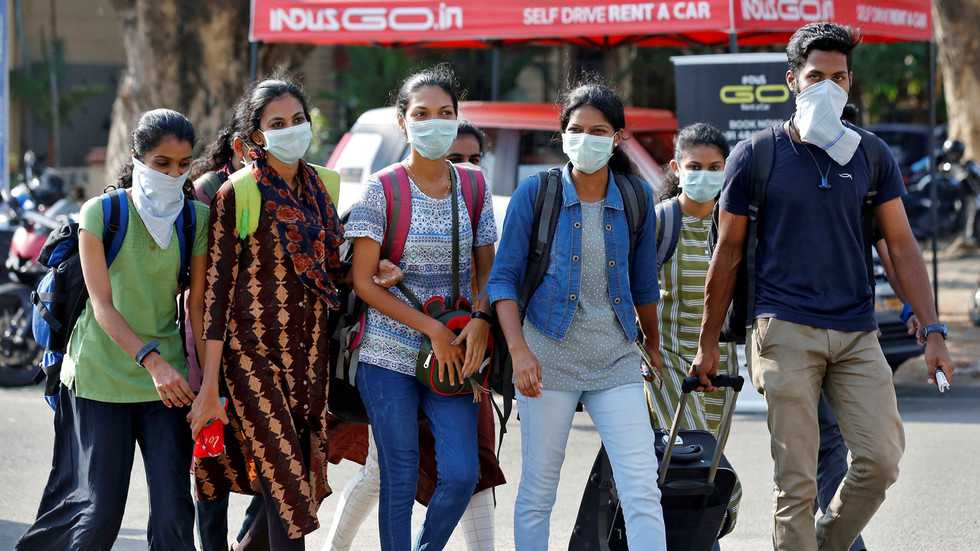
Police in the Indian city of Nagpur have been hunting down patients who fled the isolation ward of a local hospital where they were interned after showing flu-like symptoms. Three out of five runaways have been tracked down.
The patients, two women and three men, were placed in a special isolation ward in Indira Gandhi Government Medical College and Hospital (Mayo) in the western Maharashtra state late on Friday after they complained of symptoms similar to those reported by people stricken with the deadly Covid-19 virus. All of them came to the medical facility of their own volition, the Times of India reported, citing medical sources.
At least one female coronavirus suspect is believed to have been in contact with a person who has the illness. The woman’s employer, his wife and a colleague are being treated at the same hospital after testing positive for Covid-19.
It’s unclear if the woman, who works as a house help, has contracted the virus herself, with the results of her test and that of the other three fugitives expected to come back on Saturday. One man has tested negative.
The runaways reportedly tricked doctors into letting them out of the ward by approaching the staff one by one and saying that they wanted to use the bathroom and help themselves to a tea.
While it is still unknown what prompted the patients to break loose, a large-scale effort to track the runaways has been launched, Deputy Commissioner of Police (DCP) Rahul Maknikar said.
“Police have been put on high alert.”
At least three patients have been since located by police, which demanded they return to the medical facility, the Times of India reported, citing sources, while the chase is underway for the other two.
India has reported over 80 cases of the coronavirus, including two that resulted in fatalities. As it’s grappling with the outbreak – declared a pandemic by the World Health Organization (WHO) earlier this week – Indian PM Narendra Modi called on all the nations comprising the South Asian Association for Regional Cooperation (SAARC) to band together to stop it from spreading.